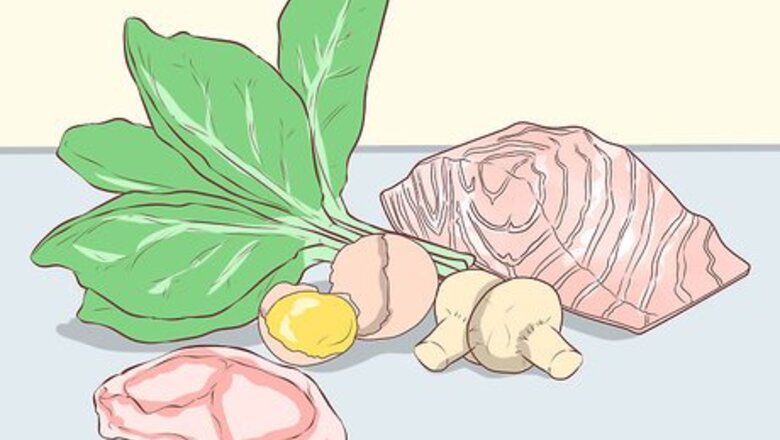
views
Optimizing Your Diet
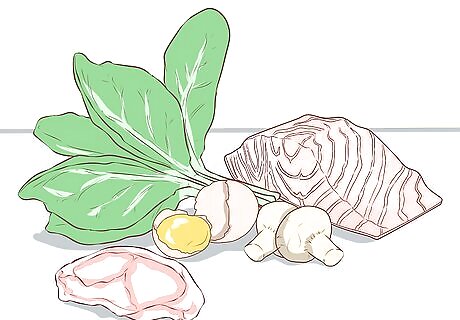
Eat a healthy, balanced diet rich in essential vitamins and nutrients. The nutrients that are most essential for hair growth are iron, vitamin D, B-complex vitamins, and zinc. Each of these plays an important role in the overall health of your hair, and thus the rate of your hair growth. Get plenty of iron by eating foods like spinach, eggs (with the yolk!), chickpeas, beans, and red meat. You can get your vitamin D from the sunshine, but eating a diet rich in vitamin D is especially important for people who live in less sunny climates. Eat things like salmon, tuna, mushrooms, egg yolks, and foods fortified with vitamin D. There are plenty of vitamins that fall under the umbrella of B-complex vitamins. Whole grains, eggs, and avocados are some of the best foods to eat in order to make sure you’re getting enough. Good news – you can get some of your zinc requirements through dark chocolate! Other sources include oysters, pumpkin seeds, and garlic.
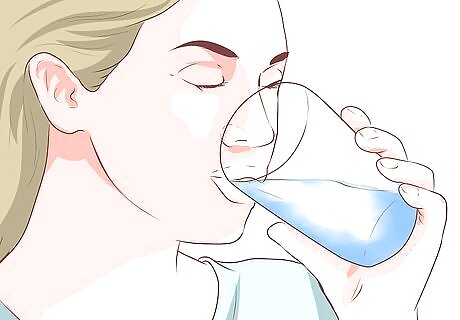
Drink plenty of water. You've probably heard the advice to drink eight glasses of water a day, and it is an important tip for growing your hair. Make sure that you drink water with every meal, and sip on it throughout the day. Replace your soda, juice, and coffee with water to make sure you’re getting enough. When your body is hydrated, your hair will reap the benefits by growing and looking shiny. Think of drinking water like watering a plant. The water you drink will nourish your hair from the scalp, just like plants are nourished from their roots.
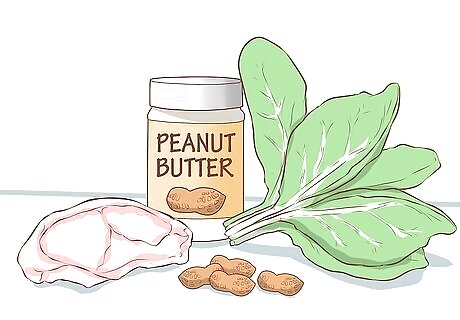
Make sure you’re getting enough protein. Meat is a great source of protein, but vegetarians can get it through foods like beans, nuts, whole grains, spinach, and peanut butter. When you’re not getting enough protein in your diet, you’re more likely to experience shedding and breakage, which is not great for those trying to grow long, healthy hair.
Taking Additional Supplements
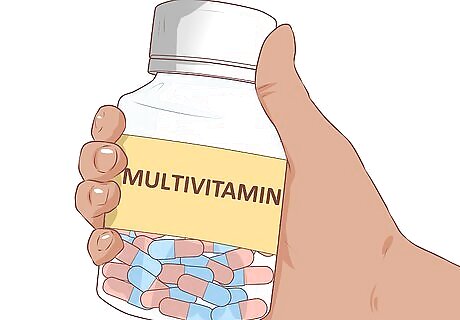
Take a daily multivitamin. While it’s always best to get your vitamins and nutrients through your food, you can help prevent any deficiencies by taking a multivitamin every day. While most daily multivitamins will do the trick, double check to make sure yours has biotin, vitamin C, and your B-complex vitamins. If you have any allergies, make sure you talk to your doctor before starting a multivitamin. Sometimes, inactive ingredients in the vitamins can cause allergic reactions. Multivitamins can interfere with certain medications. It's extremely important that your doctor knows your medical history, your current prescriptions and medicines, and has given you the all-clear to start taking multivitamins.
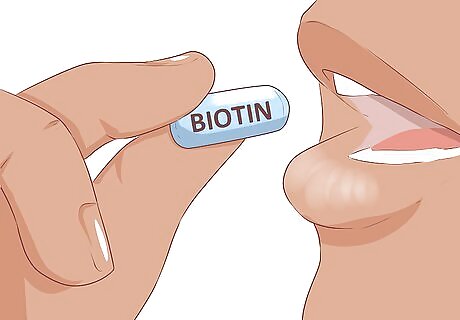
Add Biotin to your daily routine. When someone is deficient in Biotin, a B-complex vitamin, they will experience dry, brittle hair and nails. Therefore, it is often recommended to take a Biotin supplement in order to prevent becoming deficient. Biotin supports hair growth by making the hair more elastic, and thus less likely to break off. People taking Biotin for hair growth should take about 500-700 micrograms a day. Keep in mind that you will need to take Biotin for months (ideally 3-6 months) before seeing big results, although it can certainly start benefitting your hair within a month. Biotin is generally safe, but any woman pregnant or breastfeeding should double-check with their doctor before beginning this supplement.
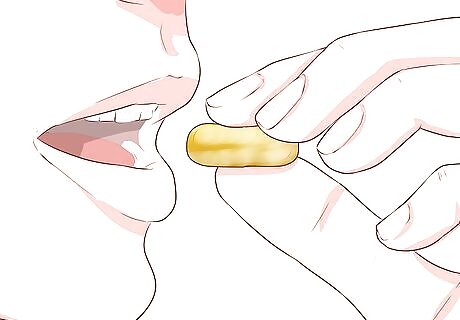
Pop a fish oil capsule daily. Fish oil has numerous benefits for your body, and healthy hair is one of them. The fatty acids that you get from fish oil helps to strengthen hair. Strong hair is more likely to grow and resist breakage. A second perk? Fish oil can make your hair shiny as well! Low doses (less than 3 grams) of fish oil is typically safe. In high doses, fish oil can prevent blood from clotting, thus increasing chances of bleeding. It can also suppress the immune system, which can be particularly worrisome for the elderly, and anyone on medication that already lowers the immune system.
Pampering Your Hair
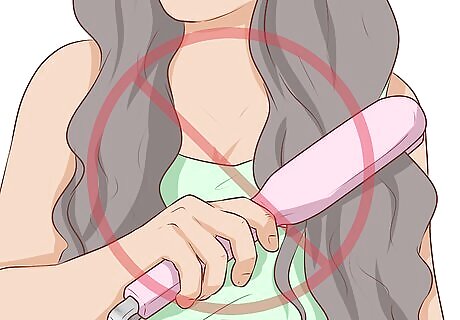
Avoid using heat on your hair. Blow dryers, curling irons, and straighteners can all cause damage to the hair, which you want to avoid more than ever while you’re trying to grow it longer. If you can take a break from styling it with heat, do it. This will help prevent breakage and keep your hair growing beautifully. If you can’t avoid using heat on your hair, make sure you spray it thoroughly with heat protectant sprays before styling. Search for hairstyles on YouTube with the keywords, “No heat,” for ideas.
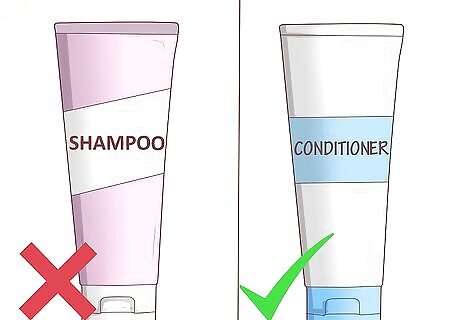
Skip the shampoo, but not the conditioner. Shampoos can be harsh on your hair. When you shampoo away the dirt and grime on your hair, you also shampoo away moisture and oils that are really healthy for your hair. Try to shampoo infrequently, and only when you really need it. However, you should condition your hair every single time you shower. Conditioner helps to seal and smooth the frizz, protecting it from damage and helping it stay healthy, and thus grow long!
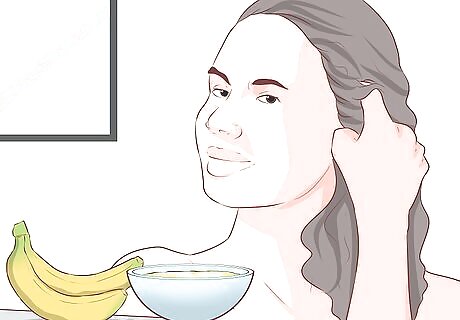
Treat your hair to masks or oils regularly. By giving your hair a little extra TLC, you’ll help it stay healthy, hydrated, and growing. You can purchase special hair treatments at your local pharmacy or beauty supply store, or you can make them yourself. You can learn about hair masks and their ingredients here! Try these DIY recipes to make an olive oil hair mask, a gelatin hair mask, a banana hair mask, or a special protein hair mask. You can apply ingredients that you already have around the house to your hair. Coconut oil is an easy, nourishing mask to tame split ends, while avocados and olive oil can make your hair shiny and sleek. Eggs can increase your hairs strength, and yogurt can clean your scalp to help hair grow. Apply a mask or other treatment to your hair every week while you’re growing it out.
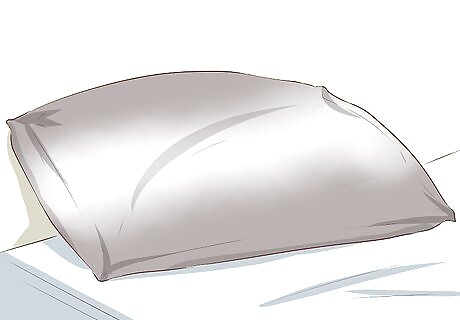
Invest in a silk pillowcase. Standard pillowcases are made of rougher fabric that can cause your hair to tangle, break, and frizz. They can also suck moisture right out of your strands. Swap your pillowcase for a silk one, and your hair will thank you. The buttery smooth texture of the silk won’t dry out your hair or cause it to break while you sleep.
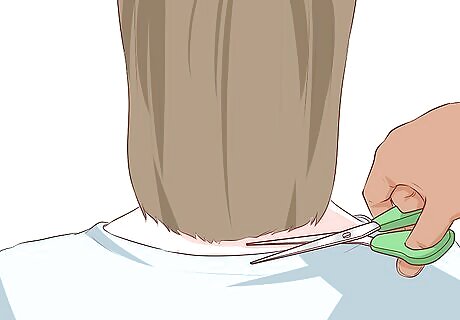
Get regular trims. It sounds counterproductive, but getting the tips of your hair cut will actually help your hair grow. When you get split ends at the end of your hair, the damage can travel up the root of the hair shaft. This can cause your hair to actually break off at various places in the strand, which is obviously not good if you’re trying to grow it out. You should get your hair trimmed every 2 to 3 months. When you go to a salon, make sure you tell the stylist that you are trying to grow your hair out, and only want a very tiny bit cut off.
















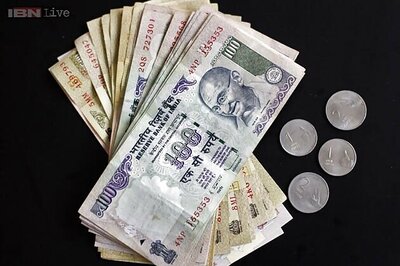



Comments
0 comment